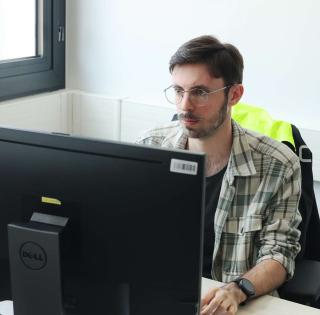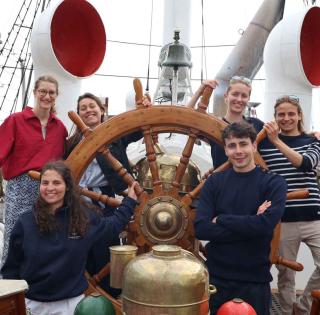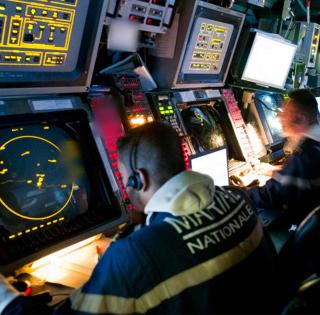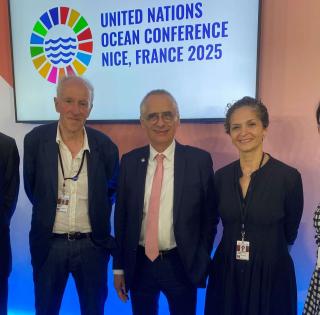
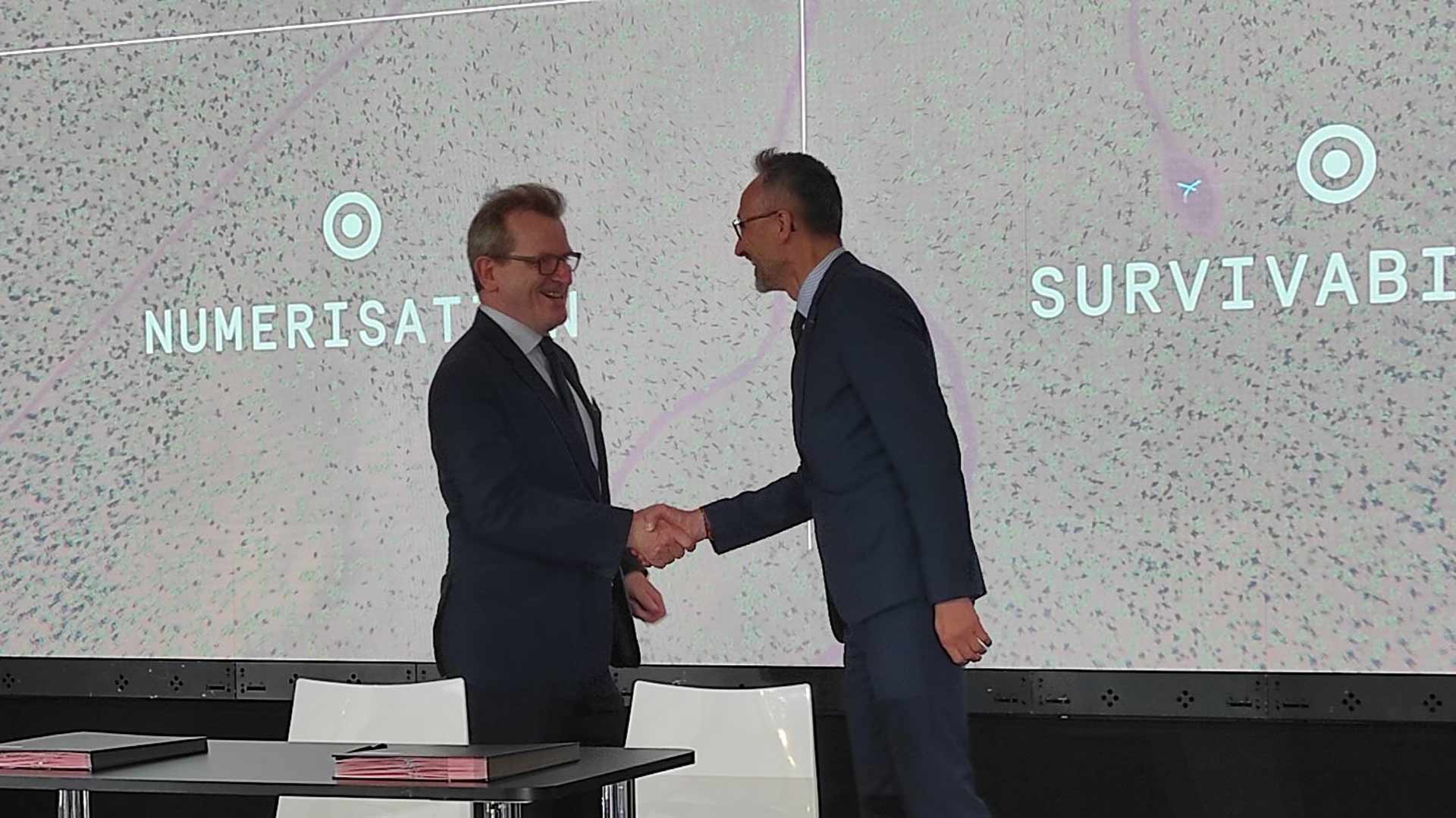
Named after the God of Thunder, THOR, who symbolizes strength and agility in Nordic mythology, this laboratory will combine joint research projects on the hybridization of army vehicles, particularly relying on the implementation of a test bed at ENSTA Bretagne. This equipment will also be used as a teaching aid for engineering students who will support this major industrial transition!
This subject will also be one of the key themes of the sponsorship of the 2024 and 2025 cohorts by Emmanuel Levacher, CEO of Arquus, scheduled to take place on Tuesday, October 3, at ENSTA Bretagne.
Emmanuel Levacher, CEO of Arquus:
The signature of this partnership with ENSTA Bretagne further strengthens our exemplary relationship with the school and our presence in the new energies sector. We are extremely proud of our enduring ties with ENSTA Bretagne and of the opportunity to establish a thriving French center of excellence which is truly able to wield influence and champion France’s proposals and expertise at European Defense level.
Bruno Gruselle, President of ENSTA Bretagne:
Arquus and ENSTA Bretagne are joining forces to serve the security and strategic independence of France and Europe by designing the military capabilities of the future. Our cooperation intends to prepare for the energy transition that army bases and vehicles must embrace at a time when war has returned to Europe and amid unprecedented climate challenges. It will benefit from the research conducted at the joint laboratory, THOR, which we are officially establishing today through this agreement
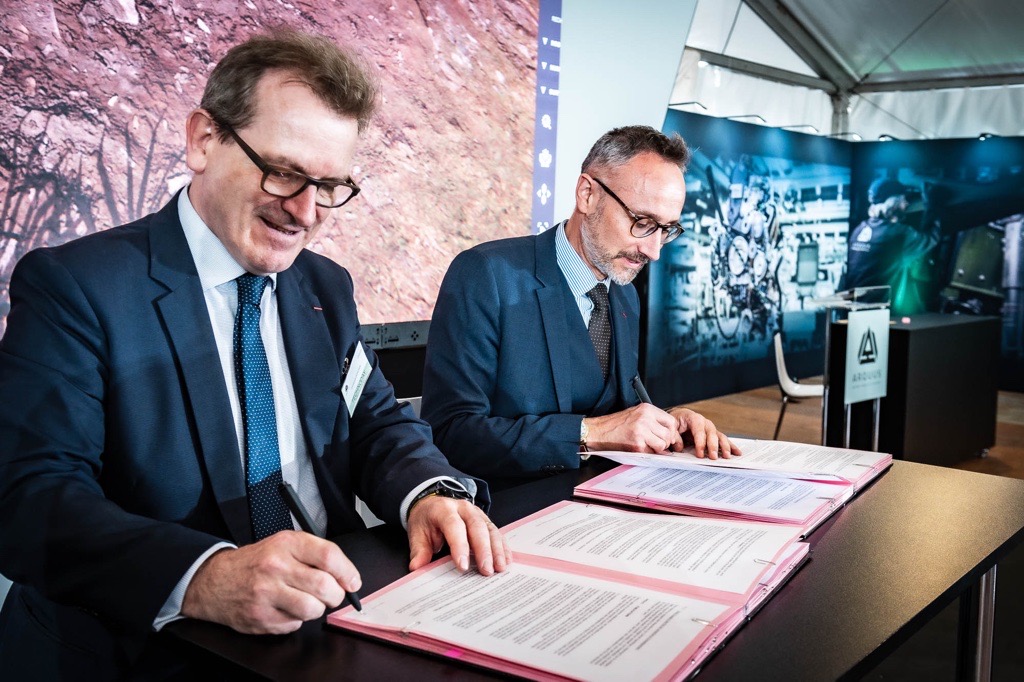
Reinventing the energy chain of army vehicles and their bases.
The incorporation of ever more energy-intensive systems in ever greater numbers, new capacities expected of these vehicles (sound and heat stealth technology, energy sharing for the benefit of other vehicles or advanced bases, incorporation of high-energy-value systems) and the necessary reduction of their carbon footprint and logistical weight are paving the way to new energy architecture in military vehicles.
Arquus is therefore firmly committed to a strategy aimed at the energy optimization of on- and off-board systems, the efficient and secure incorporation of new energy sources (electricity, hydrogen in particular) and hybrid systems within the military vehicles it designs, makes and maintains over the long-term. This goal, which could set the stage for 60% less greenhouse gas emissions, must also meet the operational requirements of the Armed Forces: power, mobility, survivability, robustness, agility and availability under all circumstances.
With that in mind, the R&D teams at Arquus are completely rethinking the energy architecture of vehicles and energy management at base, by combining the science- and technology-related expertise of Arquus and ENSTA Bretagne in vehicle architecture, engines and energy systems.
This strategic objective of Arquus is contributing to efforts to reduce the Armed Forces’ energy dependence by making it possible to “consume safely, consume less and consume better”. Arquus would thus like to establish a French center of expertise in the energy sector, capable of rallying leading stakeholders to the cause and wielding European-wide influence.
A joint laboratory bringing together key skills
In this context, ENSTA Bretagne is being called on to help design this new engine architecture and characterize the materials and assemblies in which these new systems can be effectively embedded, subjecting the vehicles to new pressures in terms of refueling and weight management. The school will also be able to contribute to the design of on-board systems that can more effectively harness the different energy sources to guarantee optimal performance and autonomy.
Arquus is a pioneer not only in propulsion solutions, but also energy generation and storage solutions for the Armed Forces. The company has recently developed the world’s first ever hybrid military vehicle, the Scarabée, designed as a forerunner of future land mobility. Arquus is also investing in the development of a hybrid version of the Griffon, the Army’s new fighting vehicle. Within the multirole armored vehicles consortium (GME EBMR), Arquus and its partners have thus recently unveiled a Griffon equipped with Li-ion batteries. Hybridization of equipment is, furthermore, a wholly relevant solution for other vehicles, including armored fighting vehicles, Infantry Fighting Vehicles or tactical trucks.
Since the hybridization of army vehicles helps to lower consumption and emissions, minimize maintenance and strengthen capabilities on the ground, the joint laboratory will accommodate a test bed for hybrid motorization to optimize the consumption of the solutions proposed and validate its behavior over extensive cyclic loading. Arquus is also preparing for the future by conducting research on energy sharing in operation and on military hydrogen. In all of its R&D work, Arquus is supported by the AB Volvo Group, a global leader in electromobility and renewable energies, of which it is the Defense Business Unit.






















